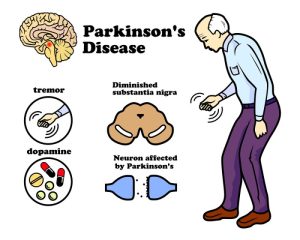
Managing high blood pressure with lifestyle changes sets the stage for this informative journey, providing insights into the intricate relationship between our habits and blood pressure levels. From the impact of diet and physical activity to stress management strategies, this guide delves into the key aspects of maintaining a healthy blood pressure through lifestyle modifications.
As we delve deeper into the realm of managing high blood pressure with lifestyle changes, we uncover the crucial role that our daily choices play in influencing our cardiovascular health.
Conditions and Diseases
High blood pressure is often associated with lifestyle diseases such as obesity, heart disease, and diabetes. These conditions are interconnected, as one can exacerbate the other, leading to a cascade of health issues.
Impact on Overall Health
High blood pressure, if left unmanaged, can have detrimental effects on overall health. It puts a strain on the heart, leading to an increased risk of heart disease. Additionally, it can damage blood vessels and organs over time, increasing the risk of other serious medical conditions such as stroke and kidney disease.
Link to Obesity
- Obesity is a major risk factor for developing high blood pressure. Excess weight puts added pressure on the heart and blood vessels, leading to hypertension.
- High blood pressure can also make it harder to lose weight, creating a cycle that is difficult to break without proper management.
Connection to Heart Disease
- High blood pressure is a significant risk factor for heart disease. It can lead to the narrowing of arteries and the formation of blood clots, increasing the likelihood of heart attacks and other cardiovascular issues.
- Managing blood pressure is crucial in preventing heart disease and improving overall heart health.
Association with Diabetes
- Individuals with diabetes are at a higher risk of developing high blood pressure. The combination of these conditions can further complicate health outcomes and increase the risk of complications such as kidney disease and vision problems.
- Controlling blood pressure levels is essential for individuals with diabetes to reduce the risk of associated health issues.
Understanding High Blood Pressure
High blood pressure, also known as hypertension, is a common condition where the force of the blood against the walls of the arteries is consistently too high. It is measured using two numbers: systolic pressure (the top number) and diastolic pressure (the bottom number), in millimeters of mercury (mmHg).
A normal blood pressure reading is typically around 120/80 mmHg.
Types of High Blood Pressure
- Primary (Essential) Hypertension:This type of high blood pressure develops over time with no identifiable cause. It is the most common type, affecting the majority of individuals with hypertension.
- Secondary Hypertension:Secondary hypertension is caused by an underlying condition, such as kidney disease, hormonal disorders, or certain medications. This type of high blood pressure tends to appear suddenly and can be more severe than primary hypertension.
Causes of High Blood Pressure
- Family history of high blood pressure
- Age (risk increases with age)
- Unhealthy lifestyle habits, such as smoking, excessive alcohol consumption, and a diet high in sodium
- Obesity and lack of physical activity
- Certain medical conditions, such as diabetes, sleep apnea, and chronic kidney disease
Lifestyle Changes for Managing High Blood Pressure
Managing high blood pressure through lifestyle changes is crucial for overall health and well-being. These modifications can significantly help in controlling blood pressure levels and reducing the risk of complications.
1. Healthy Diet
Adopting a healthy diet rich in fruits, vegetables, whole grains, and lean proteins can have a positive impact on blood pressure. Limiting salt, saturated fats, and processed foods is essential in maintaining optimal blood pressure levels.
2. Regular Exercise
Engaging in regular physical activity, such as brisk walking, swimming, or cycling, can help lower blood pressure. Exercise strengthens the heart and improves blood circulation, contributing to better overall cardiovascular health.
3. Weight Management
Maintaining a healthy weight is crucial for managing high blood pressure. Losing excess weight through a combination of diet and exercise can significantly reduce blood pressure levels and decrease the strain on the heart.
4. Stress Management
Chronic stress can contribute to high blood pressure. Implementing stress-reducing techniques such as meditation, deep breathing exercises, or yoga can help lower blood pressure and improve overall well-being.
5. Limit Alcohol and Quit Smoking
Excessive alcohol consumption and smoking can elevate blood pressure levels and increase the risk of cardiovascular diseases. Limiting alcohol intake and quitting smoking are important steps in managing high blood pressure effectively.
Diet and Nutrition
Proper diet and nutrition play a crucial role in managing high blood pressure. By making healthy food choices, you can naturally lower your blood pressure and reduce the risk of complications associated with hypertension.
Foods Beneficial for Reducing High Blood Pressure
- Eating a diet rich in fruits and vegetables, which are high in potassium, can help lower blood pressure. Potassium helps your body balance sodium levels, which is important for maintaining healthy blood pressure.
- Including whole grains, such as brown rice and oatmeal, in your diet can also have a positive impact on blood pressure. Whole grains are rich in fiber, which can help reduce blood pressure levels.
- Consuming foods high in omega-3 fatty acids, like fatty fish (salmon, mackerel, sardines), nuts, and seeds, can help lower blood pressure and reduce inflammation in the body.
Role of a Healthy Diet in Lowering Blood Pressure Naturally
A healthy diet can contribute to lowering blood pressure naturally by reducing the intake of sodium, saturated fats, and cholesterol. Limiting processed foods, fast food, and sugary beverages can help improve blood pressure levels.
Additionally, maintaining a healthy weight through proper nutrition can lower the risk of developing hypertension and other cardiovascular diseases. Eating a balanced diet that includes a variety of nutrient-rich foods can support overall heart health and help manage high blood pressure.
Physical Activity
Regular exercise plays a crucial role in managing high blood pressure by improving overall cardiovascular health and reducing stress on the heart. It can also help in maintaining a healthy weight and improving circulation in the body.
Types of Physical Activities
- Aerobic Exercises: Activities like brisk walking, jogging, swimming, or cycling can help lower blood pressure.
- Strength Training: Incorporating weightlifting or bodyweight exercises into your routine can also be beneficial.
- Flexibility and Balance Exercises: Practices like yoga or tai chi can improve overall physical well-being.
Recommended Duration and Intensity
It is generally recommended to aim for at least 150 minutes of moderate-intensity aerobic exercise per week, spread out over several days. This could include 30 minutes of exercise on most days of the week. Additionally, incorporating strength training exercises at least two days a week can further enhance the benefits of physical activity in managing high blood pressure.
Stress Management

Stress plays a significant role in the development and exacerbation of high blood pressure. When under stress, the body releases hormones that constrict blood vessels and increase heart rate, leading to elevated blood pressure levels over time.
Strategies for Managing Stress
- Practice deep breathing exercises: Deep breathing can help calm the mind and reduce stress levels, ultimately lowering blood pressure.
- Engage in regular physical activity: Exercise is a great way to reduce stress and improve overall well-being, which can have a positive impact on blood pressure.
- Try meditation or mindfulness: These practices can help you focus on the present moment and alleviate stress, promoting lower blood pressure levels.
- Get enough sleep: Lack of sleep can contribute to increased stress and higher blood pressure, so prioritize getting quality rest each night.
Importance of Relaxation Techniques
Relaxation techniques are crucial in controlling high blood pressure as they help to counteract the effects of stress on the body. By incorporating relaxation practices into your daily routine, you can effectively manage your blood pressure levels and improve your overall health.
Last Recap
In conclusion, the path to managing high blood pressure through lifestyle changes is paved with opportunities for better health and well-being. By embracing a holistic approach that encompasses diet, exercise, and stress management, individuals can take charge of their blood pressure levels and pave the way for a healthier future.
Quick FAQs
Can stress really impact blood pressure levels?
Yes, chronic stress can contribute to high blood pressure by triggering the body’s “fight or flight” response, leading to elevated blood pressure levels over time.
What are some examples of foods that can help lower high blood pressure?
Foods rich in potassium, such as bananas and leafy greens, are beneficial for reducing high blood pressure. Additionally, foods low in sodium can also support healthy blood pressure levels.
How does regular exercise help in managing high blood pressure?
Regular exercise helps strengthen the heart, improve blood circulation, and reduce stress levels, all of which contribute to better blood pressure control.
Is it necessary to completely eliminate stress to manage high blood pressure?
While eliminating all stress may not be feasible, adopting stress management techniques such as deep breathing, meditation, or yoga can significantly help in reducing stress levels and managing high blood pressure.





